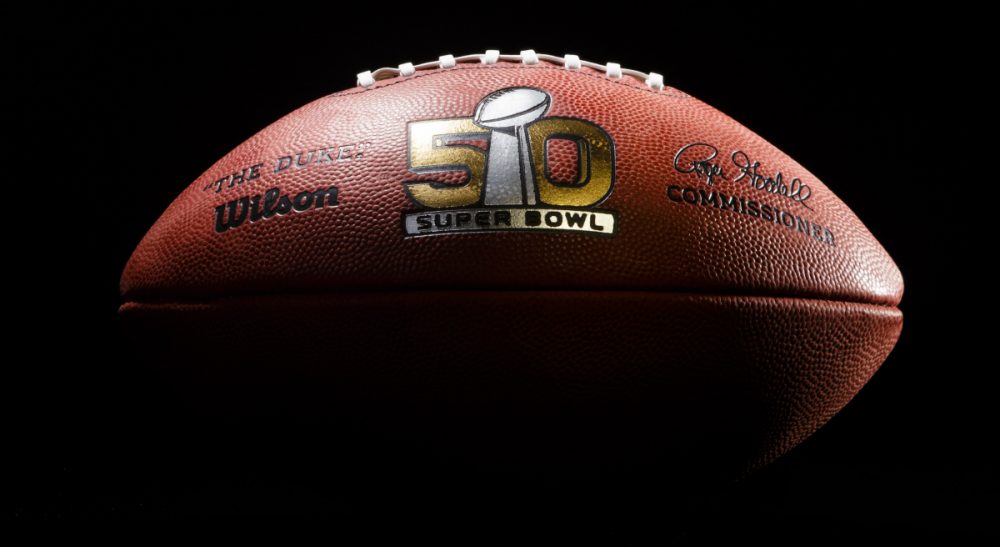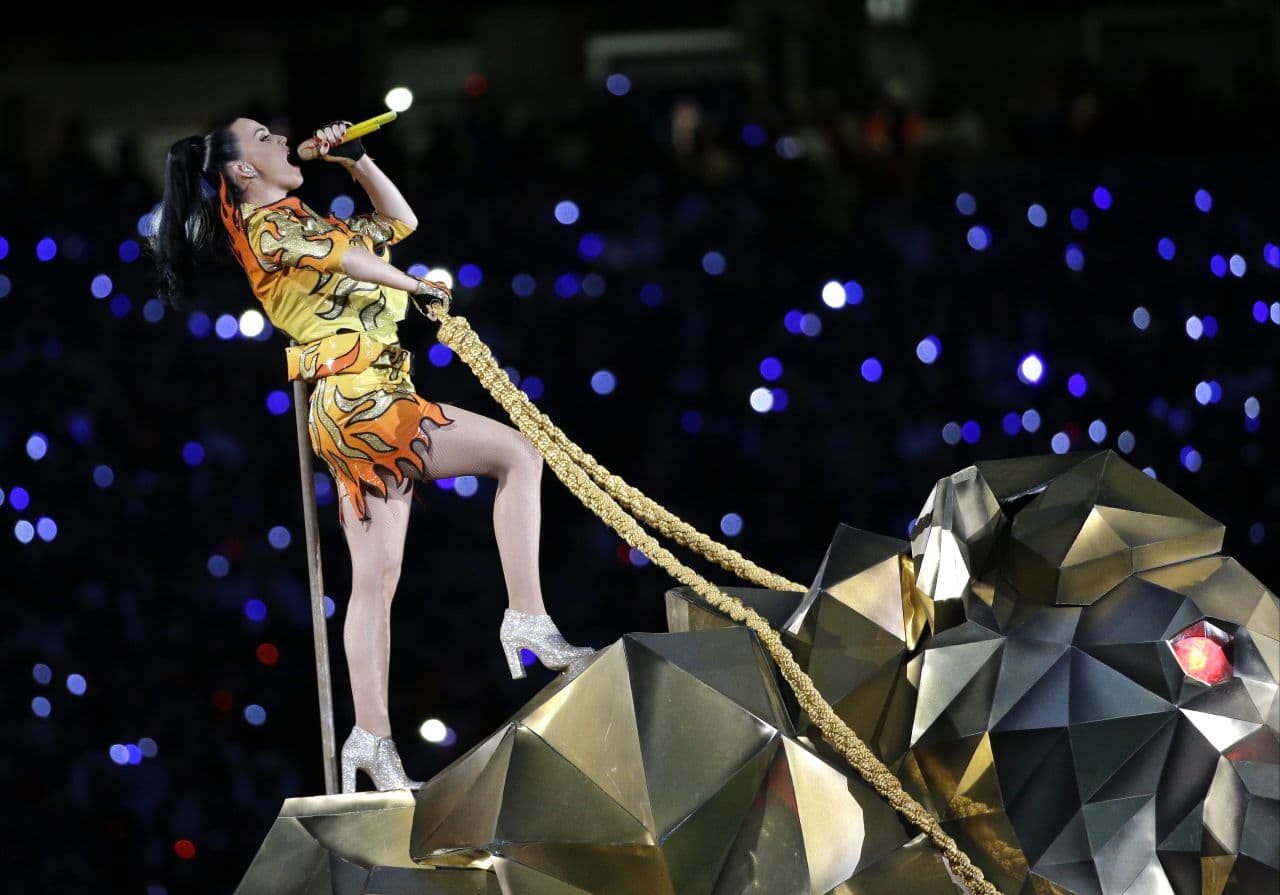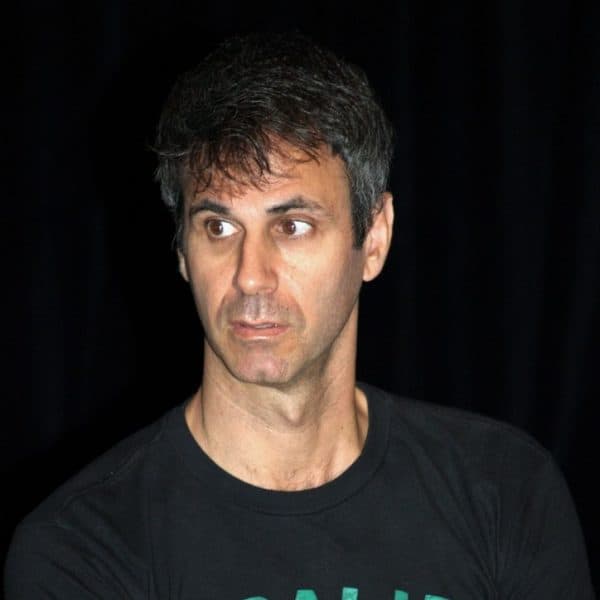Advertisement
The Meaning Of The Super Bowl

If the televisual prognosticators are right, more than 120 million Americans will tune in to watch the Super Bowl on Sunday. To put that in perspective: it’s 15 million more Americans than voted for president in the year 2000.
I myself will not be watching the big game, for various high-and-mighty reasons, which I’ve elaborated on (rather tediously) elsewhere.
But it is my firm belief that the Super Bowl, as a national event, is hugely significant. I think it says more about American culture at this historical moment than whatever passes for political discourse.
We’re about watching stuff and buying stuff. And the Super Bowl is the singular occasion purely dedicated to those two pursuits...
So what is the Super Bowl? What does it mean?
There is, of course, the game on the gridiron, which is about beauty and grace and valor and competition. No argument there.
It also happens to be about patriarchal values (men=warriors; women=sexual objects) and the consumption of sanitized violence, and the moral decision fans make to regard as entertainment a game that destroys its players.
But the Super Bowl is so much bigger than the ball game at this point. It’s become our High Holy Day of Consumerism.
After all, those religious holidays, or the ones that invoke the deprivation of our history, have come to feel so contrived, so out of touch with the America of 2016. Because we’re not a population that’s about spiritual contemplation or gratitude. We’re about watching stuff and buying stuff.
And the Super Bowl is the singular occasion purely dedicated to those two pursuits, undiluted by the inconvenient whispers of our conscience.

This is why TV sales spike, and why supermarkets and restaurants are overrun. It’s the United States by way of Descartes: We watch, therefore we eat.
But of course, the Super Bowl is also about the brands. (Maybe most of all about the brands.) What do the brands have to say? What will Bud Light come up with? What about Chevy?
We want to know which beers are going to make us laugh and which toothpastes are going to make us cry. Some of the best minds of our generation, real life Don Drapers and Peggy Olson’s, create these brisk narratives, and we sit riveted before pitches that pose as art.
This, too, the Super Bowl celebrates: the enthralling conversion of our feelings into purchases and the comforting illusion that these purchases will transform us, will make us happy and cool and virtuous and inspired. The endless hoopla about the ads themselves is a kind of joyous meta-capitalism: it’s us consuming our own consumption.
Advertisement
But wait! That’s not all! The Super Bowl is also about our devotion to celebrities. Not just the athletes, but the rock stars and movie stars and political stars, the whole heavenly assembly of entertainers.
Centuries from now, I suspect, other cultures will look upon the Super Bowl ... as the purest expression of our way of life.
Because entertainment is the one market that America still owns, the one product line we’re still exporting more than we import. Sure, our manufacturing sector is in decline, our civic life is bleeding out, our political system is rigged. But we still know how to throw the best parties.
And the great thing is that no one is above the hype. Everyone plays along, for the money or the fame. Lady Gaga sings the national anthem. Amy Schumer pimps for Budweiser. David Bowie’s music gets “leveraged” for an Audi spot.
There is no such thing as selling out when it comes to the Super Bowl, because the whole point of the Super Bowl is selling out. It’s our own cultural version of Too Big to Fail: a day-long bacchanal so instantly gratifying and massively popular as to annihilate any questions about the moral wisdom of devoting so much of ourselves to a spectacle so inherently and humanly trivial.
Maybe that’s the Super Bowl’s deepest meaning. It’s our ultimate refuge from the burdens of adulthood, our greatest guilt-free zone, a celebration that transcends sport, celebrity, even salesmanship, that offers us a dizzying but hi-def vision of what we’ve become as a nation and a people.
Centuries from now, I suspect, other cultures will look upon the Super Bowl not merely as an annual ritual carried out by Americans during the 20th and 21st centuries, but as the purest expression of our way of life.
